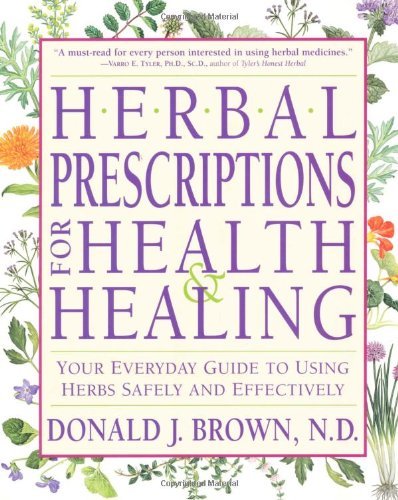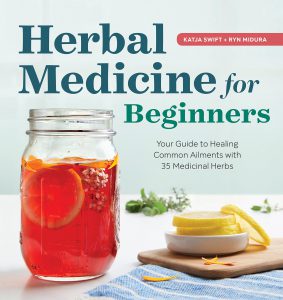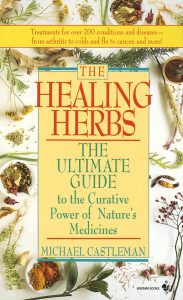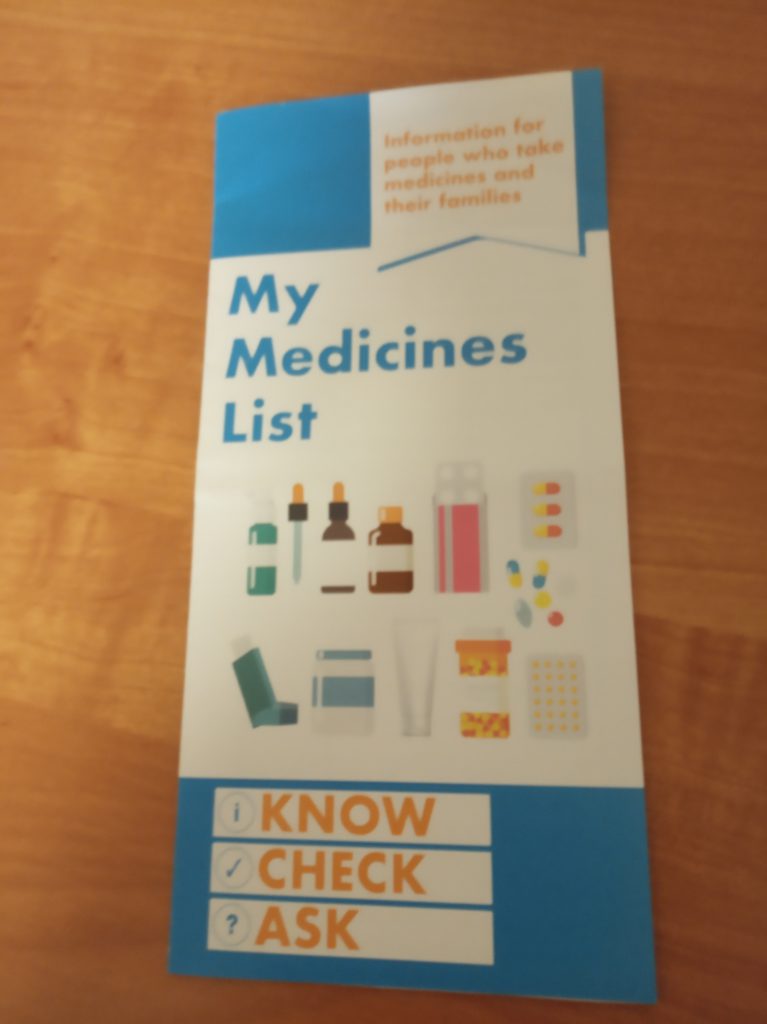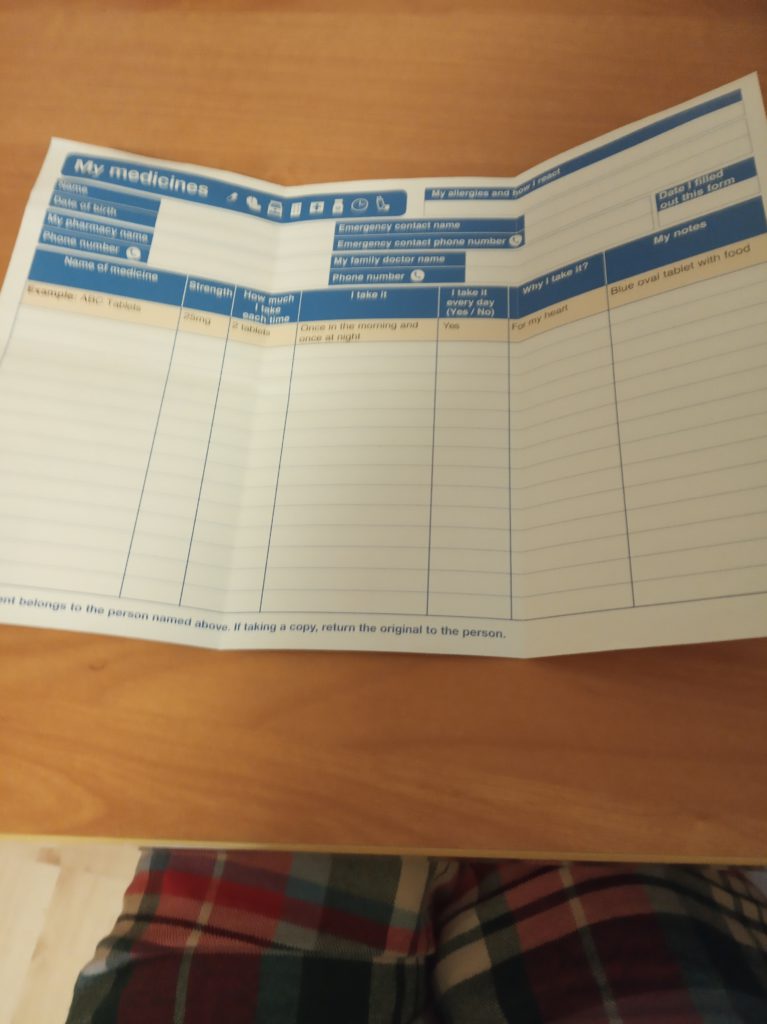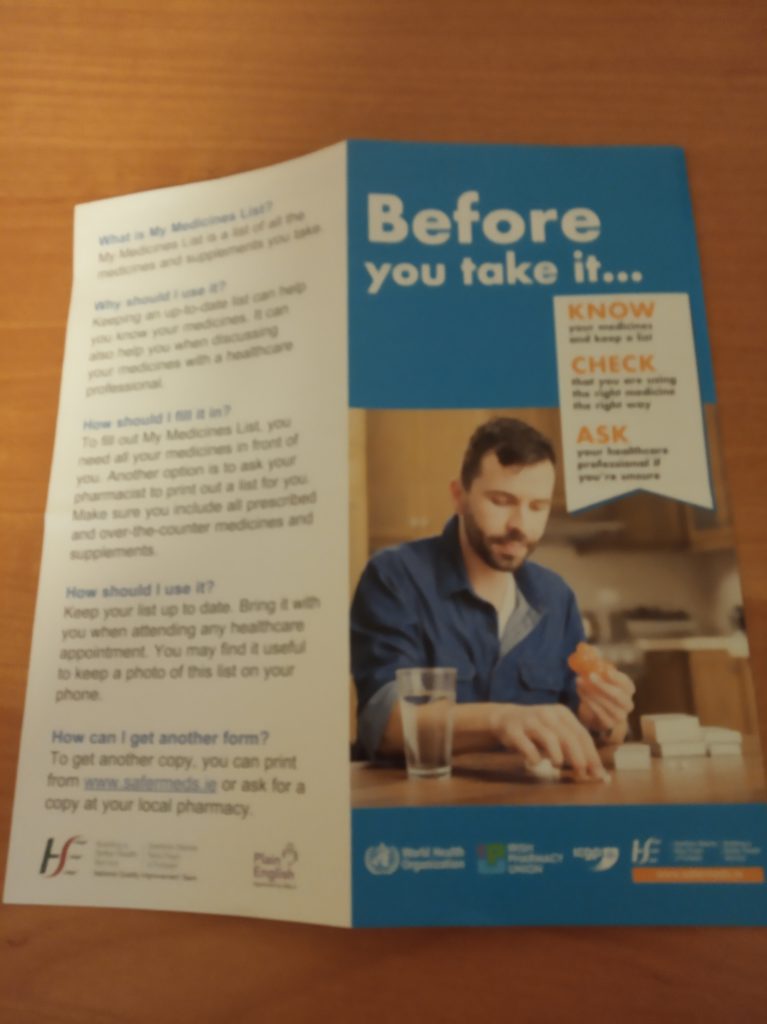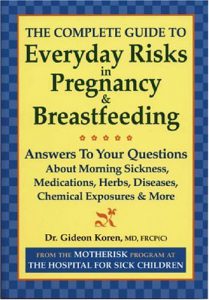Herbal Prescriptions for Health & Healing: Your Everyday Guide to Using Herbs Safely and Effectively
Currently, a lot of of the world’s population have used or are using some type of herbal supplement.As the popularity of these supplements continues to increase, some people use these supplements in place of traditional medications. It is important that everyone be informed about the safe use of herbal supplements before taking them.
Using herbal supplements to fix health problems and heal injuries seems like a win-win situation. Herbal medicines are those with active ingredients made from plant parts, such as leaves, roots or flowers.Today, herbal remedies can come in a variety of forms such as: pills, powders, teas, extracts, and fresh or dried plants. Such remedies are believed to be safe as they are made from natural plants but arent.
Otherwise known as botanicals, herbs which can be found in both foods and supplements differ from vitamins and minerals in that they can be used for health-supporting purposes, and generally support a particular area of health such as bones or the liver.
The fact that something comes from a plant does not mean it is harmless. There are numerous plants out there sporting poisonous leaves or other plant parts.
Unlike conventional medications, herbal supplements do not undergo rigorous scientific study using randomized, controlled clinical trials that are designed to measure objective “end points.”
In the same way that conventional medications can have unpleasant side effects or dangers if taken together, plant-based therapies can potentially interact in undesirable ways.
A major misconception is that plant-based remedies, like food plants, are safe in any amount and for an unlimited amount of time. The reality is that taking too much or using them for too long is as risky as over using traditional medications.
Only a medical professional or trained herbalist should determine if a particular substance is harmless and effective. (Keep in mind that not all doctors are experts in alternate therapies. It is to a patient’s advantage to do some research and bring the results to the doctor.)
Researching safe dosages, and following the product maker’s guidelines are vital steps. And be sure to know the proper interval between doses and how long it takes for the remedy to produce results.
Always start with low doses and pay close attention to how you are responding to it. Slowly increase the dose until you reach the recommended dosage. Some herbs may act pretty quickly, others take a week, several weeks, or sometimes up to a couple of months to show results.
Of course, many herbs have been tested and work well for their intended purpose. Many are also quite safe, but the word “natural” will not tell you which ones are safe and which ones are not safe.
How to Choose and Use Herbal Remedies Safely
These tips can help guide you through the processes of finding and using herbal remedies safely.
Do your homework
Herbal Medicine for Beginners: Your Guide to Healing Common Ailments with 35 Medicinal Herbs
It’s tempting to blindly follow trends and load up your shopping cart with every great-sounding supplement on the market. Research wisely, gaining enough knowledge to understand the supplement’s potential benefits and its potential risks and side effects.
Look closely at the claims made about the product. How is the product described? Is it a “miracle” pill that “melts away” fat? Will it work faster than regular care? Is it a secret your health care provider and drug companies don’t want you to know? Such claims are red flags. If something’s too good to be true, it probably is not.
Remember “real-life stories” are not scientific proof. Many products are promoted with real-life stories. Even if the quote comes from a provider, there’s no proof that other people will get the same results.
Consult with a trained herbalist or naturopathic physician both of whom can steer you in the right direction . This is your health that’s at stake!
Take your health condition into account
The Healing Herbs: The Ultimate Guide to the Curative Power of Nature’s Medicines
Herbal supplements are comprised of powerful components that, when mixed with other medications (as well as certain foods and alcohol), may interfere with the ways in which other chemicals are processed ,intensifying the side effects of some medications while weakening the therapeutic benefits of others.
You must understand your own symptoms first and foremost,the more that you understand about yourself and your health conditions, the easier it will be to choose a herbal remedy.
Before trying a product, talk with a professional herbalist.I made an error here myself I bought some chinese and indian medicine online to help me with my menopausal symptoms but it interfered with my Type 1 diabetes medication that is my insulin so I stopped taking it and it gave me other side effects too such as vagina infections such as thrush.
So be very careful when it comes to taking herbal medicines because they can have dangerous side effects especially for us diabetics.
However this is not true for everyone it is a matter of trial and error and if you contact a trained herbalist with a lot of knowledge in this area herbal medicine can be very beneficial so I wouldnt rule out using it !
Its just a matter of getting the correct advise which I failed to do but I learned my lesson and I have found that a healthy diet full of plant based foods makes the menopause symptoms less severe!
Anyway that’s all I want to say on the matter here.I hope you find this article useful but it’s not intended to turn you off using herbal medicine just to warn you of the potential dangers of using herbal medicine for a long period of time without the right guidance!
Ask for a good herbalists opinion. Is the product safe? What are the chances it will work? Are their risks? Will it interact with other medicines? Will it interfere with your treatment?
The same precautions apply as any other medicine. The more you know about herbal medicine and their impact on the body, the better equipped you’ll be to safeguard your well-being.
Check for a seal of approval
Different brands offer different ingredients and concentrations. Once you know which natural herbs might be right for you, inspect their labels carefully.
What you should be looking for is whether the herb is standardized—a method in which the herb is chemically tested to determine the potency of its active compounds.
Buy only from companies that have certification on the label, such as “USP Verified” or “ConsumerLab.com Approved Quality.” Companies with these certifications agree to test the purity and quality of their products.
Additionally, check the label to ensure that the supplement meets the FDA’s Current Good Manufacturing Practices (CGMP), which certifies that manufacturing processes are up to present standards and details the product’s strength, quality, purity and identity while also screening for contaminants, deviations, mix-ups and other errors.
Happen upon an ingredient that seems suspicious? Don’t hesitate to consult your doctor or herbalist. After all, when it comes to your health, it’s smarter to err on the side of caution.
Know the source
Recent reports reveal that some herbal medicines from different countries aren’t what they say they are.
It’s imperative to know where your supplement was sourced. Is the manufacturer reputable? Where does the herbal supplement come from ? In what type of environment was it cultivated and processed? How and when?
It is very important to research the companies producing herbal remedies in order to determine whether or not the products they are creating are safe and effective. Some great resources for learning about herbal medicine include: the American Botanical Council, the Herb Research Foundation and HerbMed.
The more information that you have about yourself and the products available, the more you will be able to protect yourself and use herbal remedies safely.
Always talk to your doctor before taking an herbal supplement especially if you have any of the following health problems
Blood clotting disorders
An enlarged prostate gland
Epilepsy
Hypertension
Immune system disorders
Thyroid problems
Parkinson’s disease
History of liver or kidney problems
History of stroke
If you have allergies, especially allergies to plants, weeds, or pollen, you should consult your primary health care provider before taking herbal medicine.
People taking blood thinners should also always consult their primary health care provider before using any of these supplements.
For more great Health and Nutrition Tips refer to the website positivehealthwellness.com.
DO NOT give herbal medications to children or use them if you are older than 65. Talk to your health care provider first.
Since older individuals may have a greater incidence of having multiple medical conditions and are more likely to take multiple medications, it is imperative that they also consult with their primary health care provider before using any herbal medicine to avoid any possible interactions .
The Complete Guide to Everyday Risks in Pregnancy and Breastfeeding
DO NOT use them if you are pregnant or breastfeeding without consulting your healthcare provider.
Although herbs are natural, not all herbs are safe to take during pregnancy. The FDA urges pregnant women not to take any herbal products without talking to their health-care provider first. Women are also urged to consult a trained and experienced herbalist (or other professionals trained to work with herbs) if they want to take herbs during their pregnancy. Some herbal products may contain agents that are dangerous during pregnancy.
Herbs may contain substances that can cause miscarriage, premature birth, pregnancy contractions, or injury to the fetus. Few studies have been done to measure the effects of various herbs on pregnant women or fetuses.
Depending on the source, some information will list a herb as safe to consume during pregnancy, whereas another source may list the same herb as unsafe. Therefore, it is best to consult with your health care provider or someone trained in using herbs before taking any natural medicine or herb during pregnancy.
The following herbs have been rated Likely Safe or Possibly Safe for use during pregnancy:
Red Raspberry Leaf – Rich in iron, this herb has helped tone the uterus, increase milk production, decrease nausea, and ease labor pains. Some studies have even reported that using red raspberry leaf during pregnancy can reduce complications .
There is some controversy about whether this should be used throughout pregnancy or just in the second and third trimester, so many health care providers remain cautious and only recommend using it after the first trimester.
Peppermint Leaf – Helpful in relieving nausea/morning sickness and flatulence
Ginger root – Helps relieve nausea and vomiting
Slippery Elm Bark – (when the inner bark is used orally in amounts used in foods) Used to help relieve nausea, heartburn, and vaginal irritations
Oats & Oat Straw – Rich in calcium and magnesium; helps relieve anxiety, restlessness, and irritated skin
Blond Psyllium – when used orally and appropriately
Black Psyllium – when used orally with appropriate fluid intake
Garlic – when used orally in amounts commonly found in foods
Capsicum (Cayenne, hot pepper) – when used topically and appropriately
Subscribe to the Natural Medicines Database for information on other herbs and natural medicines.
Depending on what type of health care provider you see, he/she may recommend using herbs to help promote the health of your pregnancy. Remember, never try to self-dose or diagnose with any medications, including herbs. Because each pregnancy is different, the best way to use herbs is under the care of a specialist herbalist, naturopathic or homeopathic doctor.
DO NOT use herbal remedies if you are having surgery
People should stop taking herbal remedies two to three weeks before surgery, because some natural remedies can lead to excessive bleeding, heart instability or a reduction in blood sugar levels.
Yet studies suggest as many as 70% of patients don’t tell their doctors they are taking herbal supplements.
It is important that patients tell their doctors about all the medications they are taking, including herbal supplements, before surgery. And doctors should provide patients with a list of supplements to avoid.
Listed below are common herbal supplements that could be a problem if you need to have surgery:
Echinacea. This herb comes from the purple cornflower and is taken for colds, infections, arthritis, and ulcers.
Ephedra. When combined with some anesthesia medicines, it can cause high blood pressure and abnormal heart rhythms.
Garlic. Garlic supplements are used to lower blood pressure and cholesterol. Garlic can increase the effects of medicines used to control blood sugar, blood thinners, and some OTC pain relievers, and it can increase bleeding during or after surgery.
Ginkgo. Ginkgo biloba is used to improve memory. But it may cause prolonged bleeding during or after surgery and make the sedation effects of anesthesia last longer.
Ginseng. Ginseng is commonly used for an energy boost or to lower blood sugar levels. During surgery, ginseng may cause high blood pressure and a rapid heart rate.
Kava. Kava is used for muscle relaxation and to calm the nerves. It may be dangerous for people having surgery because of its interactions with other medicines. It may also cause liver damage.
St. John’s wort. Also known as goatweed, this herb is taken to relieve depression and anxiety. During a surgical procedure, St. John’s wort may interfere with some anesthesia medicines and make it harder for you recover from the effects of anesthesia.
Valerian. This herb is used to relieve anxiety. It may increase the effects of anesthesia and make it more difficult to wake up after surgery. It may also cause irregular heart rhythms.
Other herbal supplements that may increase bleeding include feverfew, ginger, and saw palmetto. Herbal supplements that could interfere with your blood pressure during surgery include goldenseed, licorice, and milk thistle.
The best advice is to talk with your healthcare provider about all medications and herbal supplements you’re taking. If you have any surgery scheduled in your future, have this discussion as soon as possible. Also, plan to stop these herbal supplements in the weeks before your operation.
This online database can help you to find interactions between drugs and natural medicines.
However, despite the fact that the process to find and safely using herbal remedies may appear difficult, herbal remedies can be a highly beneficial to support or improve your daily lifestyle and overall wellbeing.
Herbal medicine is considered to be most effective when it is used with a healthy diet and proper exercise.
If you have any information,questions, or feedback you would like to include in this post.
Please email momo19@diabetessupportsite.com or leave your comments below.
